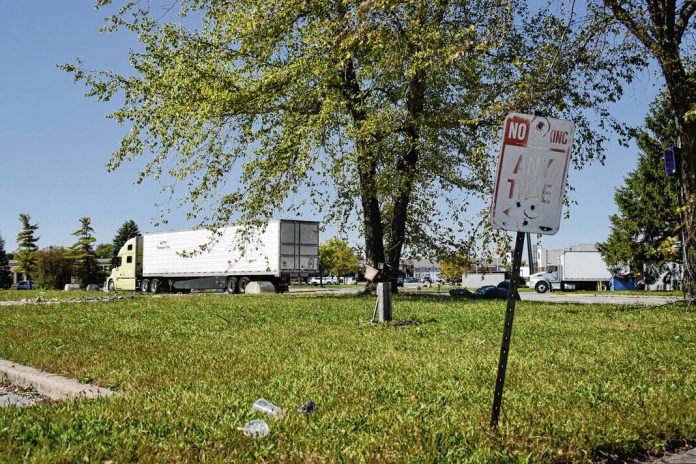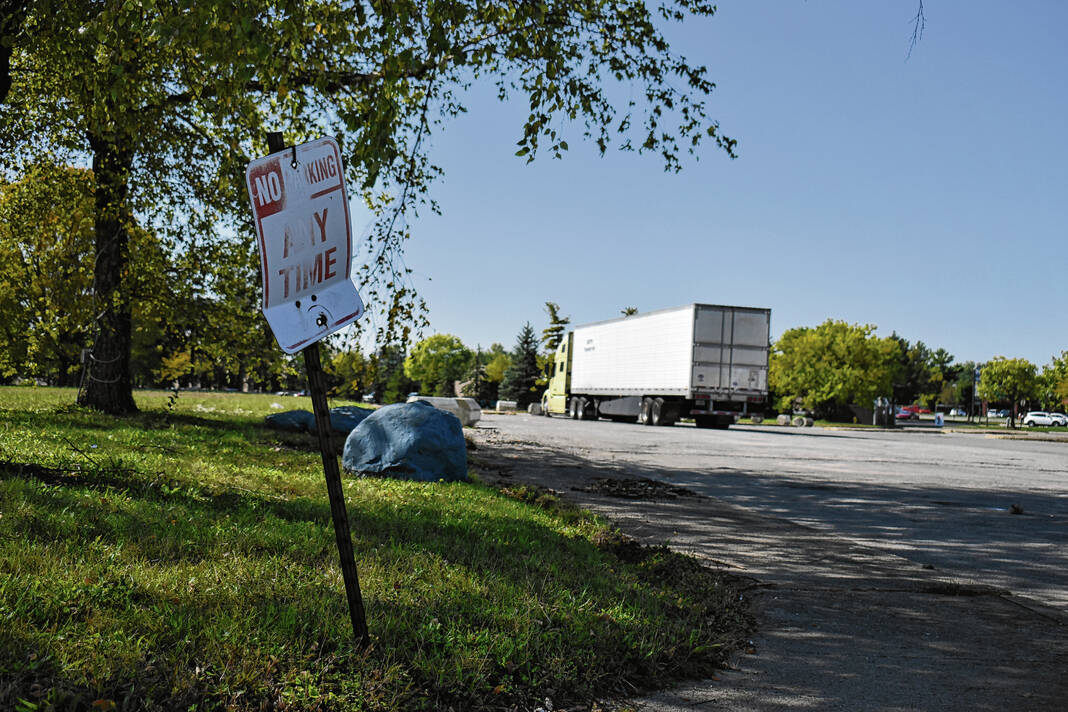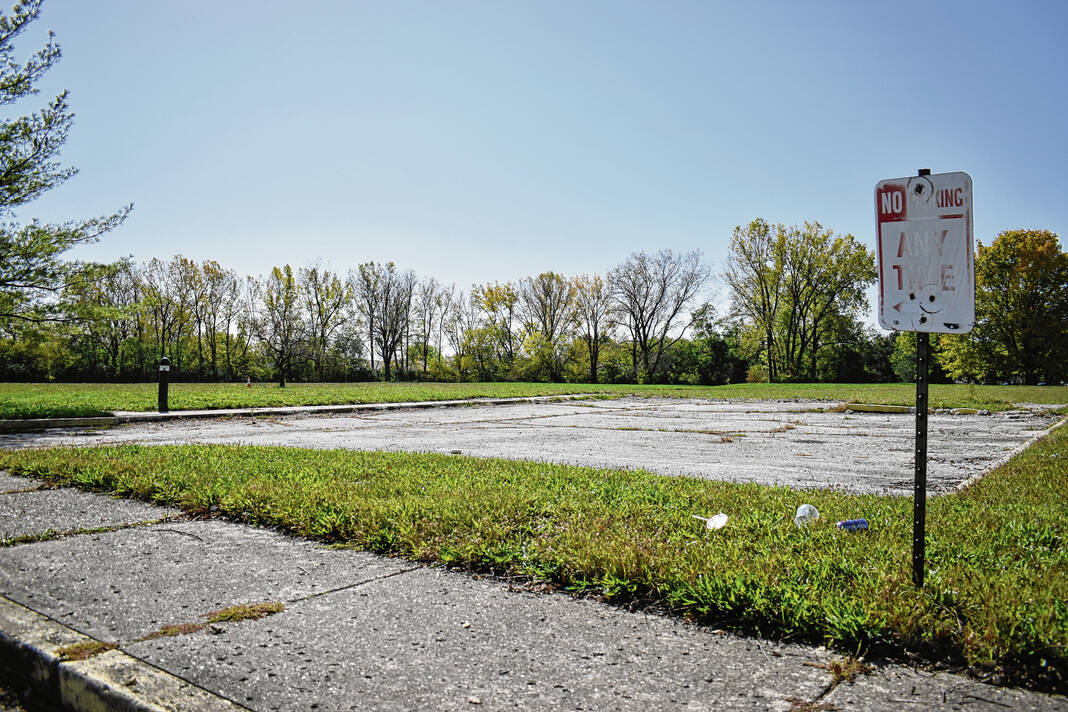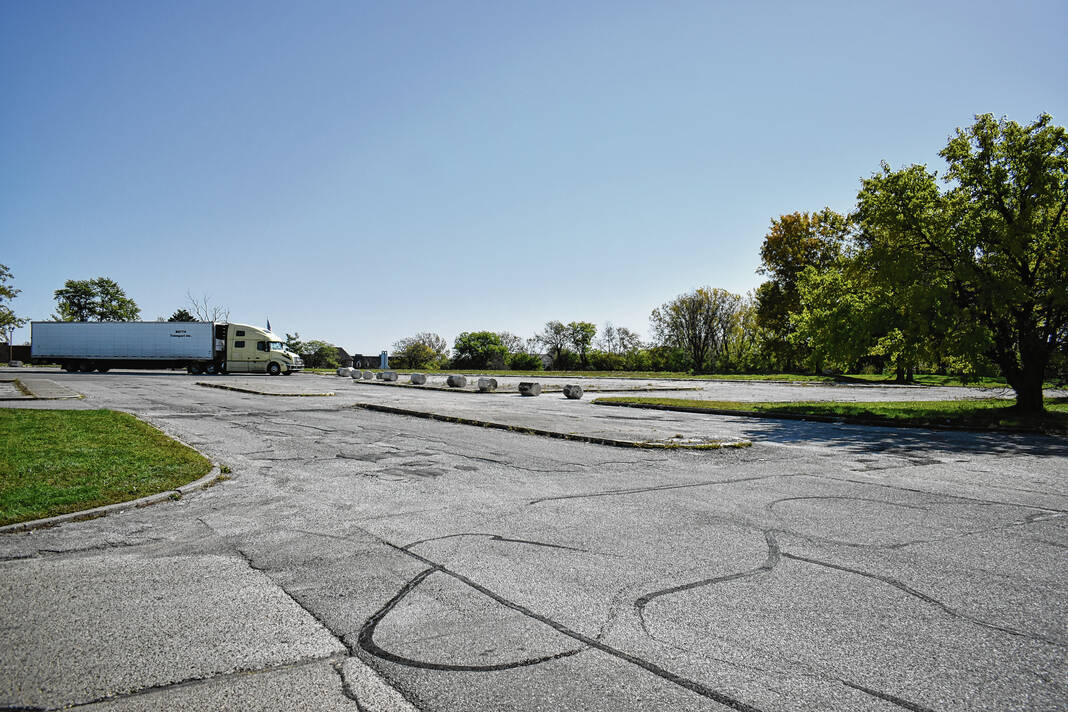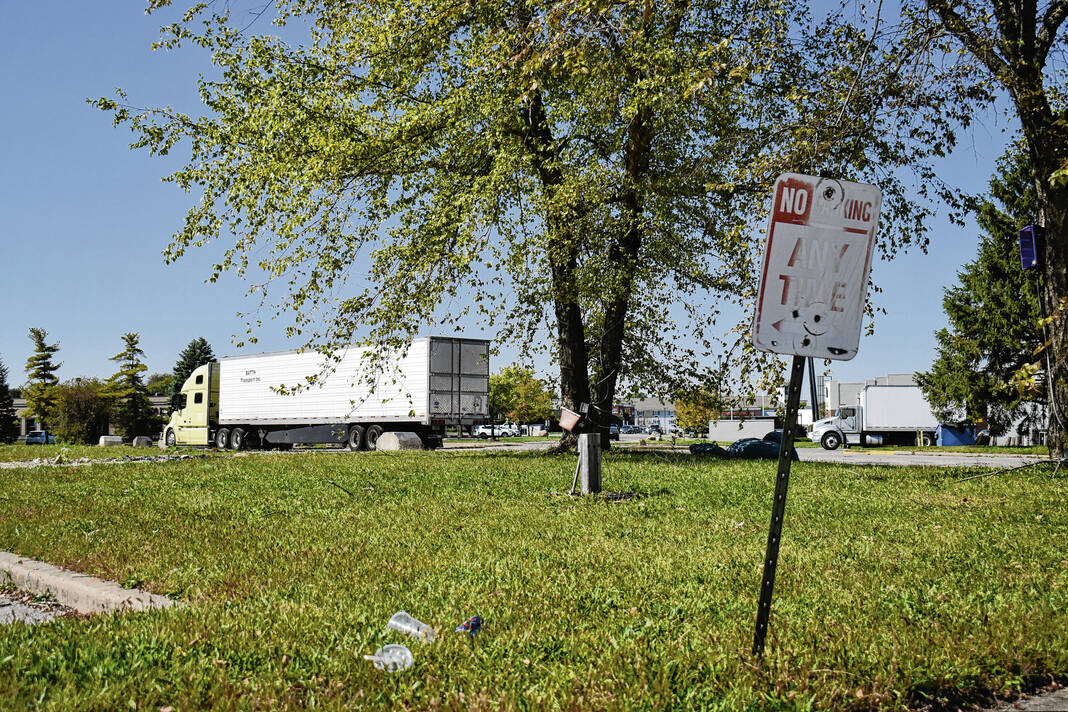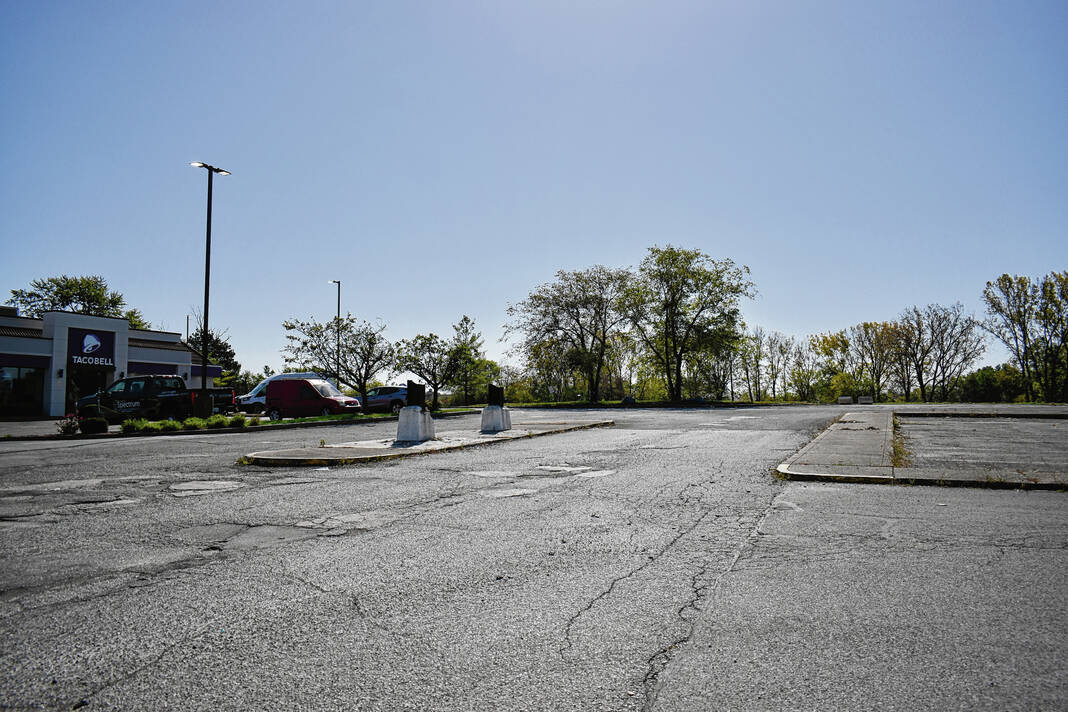Semi-trucks have been using the now-vacant site of the former Red Carpet Inn as a place to park — and at least one Greenwood resident wants it to stop.
The Red Carpet Inn and Fanta Suites, a troubled hotel located off Main Street and Interstate 65, was demolished earlier this year after a lengthy battle between the city of Greenwood and its former owners. Now the land is vacant, leaving it a blank slate for future development.
But semi-truck drivers have been taking advantage of the empty lot, using it as a place to park.
Randy Goodin, a Greenwood resident who’s concerned about the amount of trucks using the site for parking, compared it to an “interstate truck stop.” Goodin brought his concerns about truck parking to the Greenwood City Council last week, asking for the city to do something about it.
When Goodin’s driven through the area, he’s noticed there are no signs that say “no parking.” There have been, at times, between three to six semi-trailers parking in the area, he said.
Additionally, the roads near the site are already “severely deteriorated” and trucks are blocking access, Goodin said. The streets are not owned by the city.
“That road is a connector between Emerson and Main. It also connects to the restaurants — Starbucks, the Waffle House, Taco Bell — and all around from there. So it is impeding traffic flow,” Goodin said.
Goodin asked if officials could put up no parking signs or police the area before they had “truck stops on both sides” of I-65.
When the Daily Journal checked out the site last week, there was only one truck parked at the site and the engine was running. There are some no parking signs on a road between the former hotel and Taco Bell, but the signs are dated and hard to read. During a subsequent visit at night, there was one semi parked with its lights off.
While Goodin asked the city if there was anything officials could do, there were not any avenues for officials to utilize.
The city does have an ordinance regulating/prohibiting commercial vehicle parking in residential areas. However, the former hotel site is in a commercial area, where no such restrictions exist, said Jim Ison, police chief.
Additionally, the land is private property. This leaves any initial action to be taken about semi parking up to the property owner, Ison said.
“The owner of that land would have to be the one to complain and ask for the semis to not park there. And we could then move or request that they move or tow them if they refuse to, but that’s not been the case,” Ison told the Daily Journal last week.
Donnie Matthews, who owns the property through DNB Realty, is aware of the issue and is planning to take action. He plans to install barricades on the site to prevent semi parking, which will also cut off some of the traffic flow through the area, he said.
“We’re not any happier about [the semi parking] than what the community is,” Matthews said Thursday.
The semi-parking situation at the site does point to an issue the city’s police department has noticed, as has agencies across the nation — semis parking in places where they are not necessarily allowed.
Greenwood Police has frequently had to patrol the on- and off-ramps at the city’s three I-65 interchanges — County Line Road, Main Street and Worthsville Road — for parked semis on the shoulders. When they are found, they are told to move or go to a truck stop, Ison said.
The reason: it’s illegal for semis to park on them. It also creates a safety issue for drivers trying to get on and off the interstate, he said.
Indiana law expressly prohibits parking on any on- or off-ramp, including shoulders. The only exception is in designated rest areas, of which there are 26 in the state.
For interstates as a whole, stopping and parking on them is illegal too. The only exceptions are in the event of an emergency or disabled vehicle, according to the Indiana’s Drivers License manual, which was last updated earlier this year.
Greenwood Police was in the news late last year for complaints about the issue, with officers planning to began ticketing drivers who did so. Mornings seem to be time when the issue comes up most, with Ison noting several instances where semis have parked on ramp shoulders and walked away from their trailers, he said.
“We’ve towed several for that reason, but the lack of parking for semis is becoming a problem,” Ison said.
Part of the issue with semi parking results from a change in federal regulations, Ison believes.
In 2020, federal regulators changed a variety of “Hours of Service” limits for truck drivers. One of the rules states that truckers cannot drive past the 14th hour of being on duty following a minimum 10-hour break off-duty without having another 10-hour break. Another says that within the 14-hour shift, drivers can drive for no more than 11 total hours.
There are also weekly limits on total driving times for carriers. Non-daily carriers cannot continue driving once they hit 60 hours on duty within any seven-day period, while daily carriers cannot drive after completing 70 hours on duty within eight days. This clock resets after a 34-hour restart, according to the Federal Motor Carrier Safety Administration.
Many semis now have timing devices that record their times to ensure compliance with the rules. If they don’t comply, they get fined, Ison said.
“It’s a safety feature, and then they have to pull over,” Ison said.
Another part of the issue is a Greenwood-specific one. In the city’s eastern industrial park, where many of the semis make pickups and drop offs, some companies won’t let them load or drop off earlier than the scheduled times. Because of this, the semis have to find a place to stop and wait, Ison said.
Ison believes semi routes should be scheduled in a way so that they could find truck stops in the area to rest at, which in many cases would require them to reserve and/or pay for a spot to rest. But not everyone wants to pay for spots, and there is also a “serious lack of space” for them, he said.
There are several truck stops in the greater Greenwood area, including one in the city, three in Whiteland and at least four near the Interstates 69 and 465 interchange on the southside. There was an attempt by RaceTrac to put another truck stop at the Main Street interchange in Greenwood a few years ago, but that proposal ultimately did not get approved.
While there are several truck stops in the area, they are still becoming fewer and far between. This, combined with federal regulations, can make it difficult for the drivers, Ison said.
Greenwood Police understands that drivers have a job to do and respect that, but route schedules need to be adjusted accordingly so they have a legal space to park.
“Our job has to be for the safety of the citizens, even though, like I said, we are sympathetic to the semi-truck driver situation,” Ison said. “They really need to plan their routes better, have spaces in the areas where they’re going to need to stop so that they can do so legally.”


